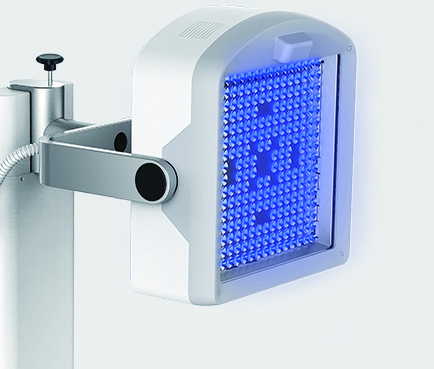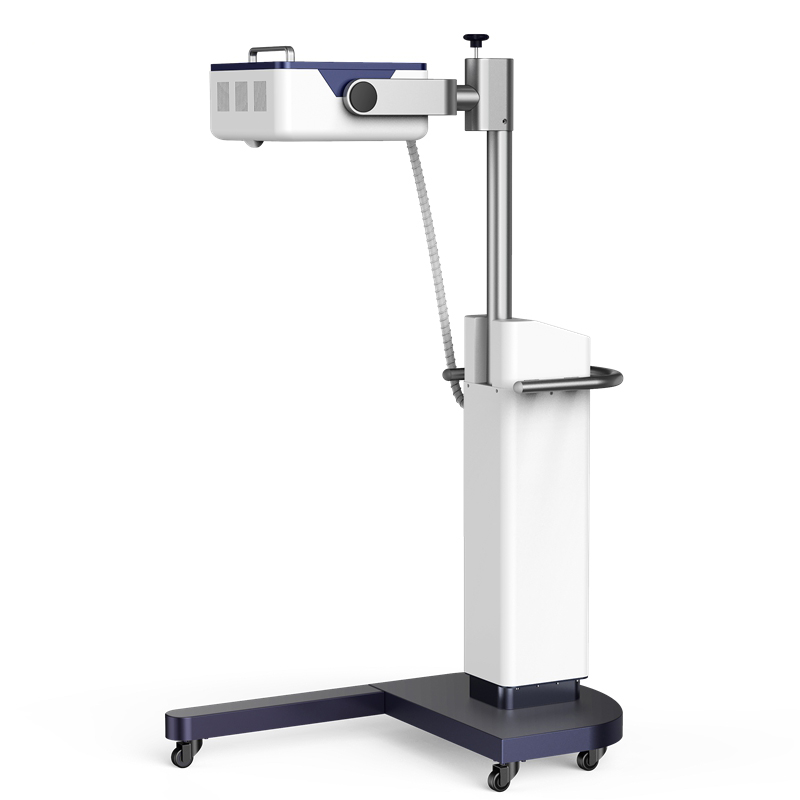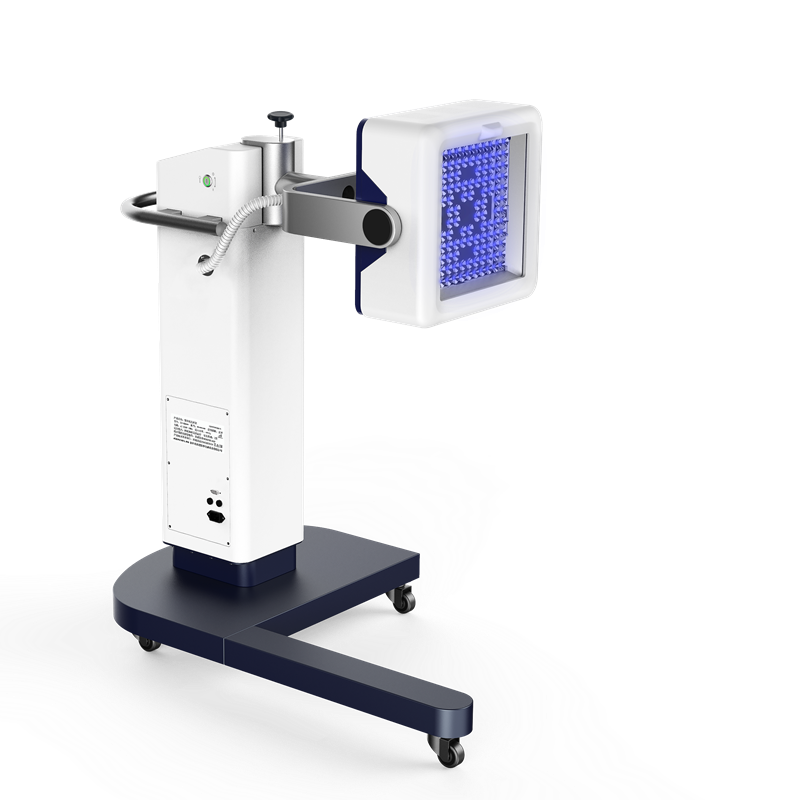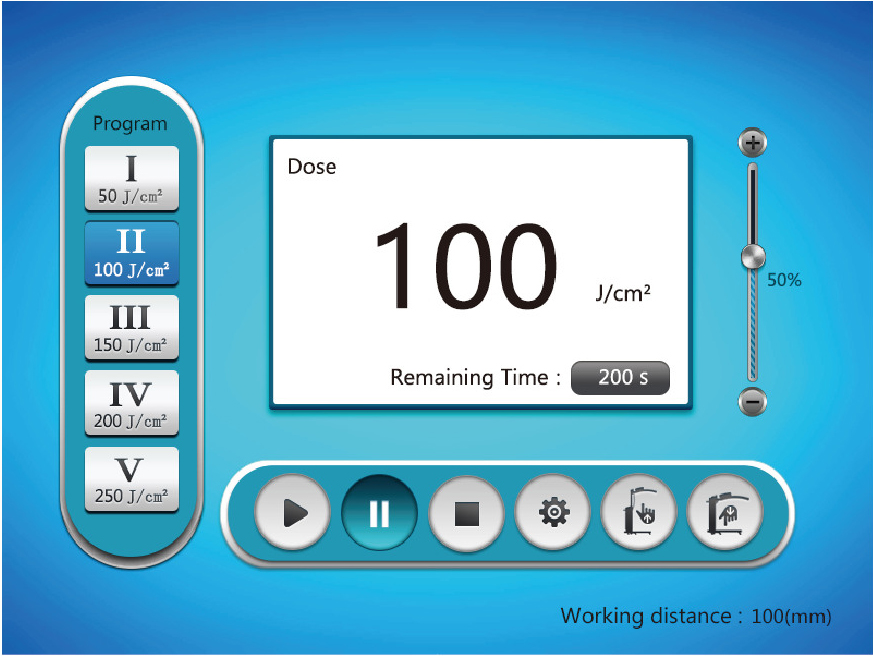
UVA1 phototherapy for Treatment of Scleroderma KN-4002A1/A2
1. The large treatment area 1600cm2.
2. Irradiation intensity multi-grade adjustment function.
3 The ergonomic lifting mechanism of is very flexible.
4. The solid base and trolley of ensure the safety of the device's operation.
5. 8'' capacitive touch screen with Easy-to-understand operating instructions.
6. Five built-in conventional treatment programs.
- vitiligo、psoriasis、eczema、pityriasis rosea
- ISO13485, CFDA
- UVA1
- available
Overview
| Solid-state Cold Light Source High-power UV solid-state cold light source with superior energy output and long-lasting performance. |
Flexible The ergonomic lifting system offers flexible control of the treatment head, satisfying clinical demands. |
|
| Superconducting Substrate The heat-conducting substrate utilizes superconducting material, and the aerodynamic heat dissipation system ensures the light source operates reliably and stably. |
Microcomputer 8'' capacitive touch screen with a large color character display for clear and easy-to-understand operating instructions. |
|
Features
*Adopt new technology high power ultraviolet solid state cold light source,high output energy,long use life.
*Designed with array type reflected light path to make the output of energy more uniform.
*Thermal conductive substrate which made of superconducting material,worked with heat dissipation system based on the principle of aerodynamics,
ensures the reliable and stable operation of the head.
*Large treatment area can meet the clinical needs of more diversified diagnosis and treatment.
*High power output,excellent effect for intractable skin disease.
*Adjustment Radiation intensity function,completely meet the individual treatment of patients with different tolerance level.
*Ergonomic lifting structure design,flexible treatment head,can meet the clinical irradiation needs for more lesion parts.
* 8 inch capacitive touch screen,colorful large character display,clear and easy to control.
*Five default conventional treatment plans.
*Upgraded with radiation intensity calibration system,combined with the use of dose work mode ,suitable for more precise treatment.
*Built-in precise sensor able to monitor the use of light source in real time,making the equipment more stable and reliable.
Technical Parameters
Rated power | 4002A1: 900VA 4002A2: 650VA |
Overall dimension | 4002A1: 650mm×1139.5mm×1124mm 4002A2: 650mm×1100.5mm×1124mm |
| Irradiation area | 4002A1: 1600cm2±10% 4002A2: 1024cm2±10% |
Display | 8 "color touch screen display |
Working distance | 5cm±1cm |
Setting exposure dose | ≤200J/cm2 |
Wavelength | 320-400nm(Peak value368nm±3nm) |
Light source | LED UVA1 |
Light source life | ≥15000 Hours |
What is UVA1?
The term phototherapy or light therapy applies to exposure of the skin to specific wavelengths of light or electromagnetic radiation. There are three ranges of radiation that are applied in phototherapy: infrared (800-3000 nm), visible light (400-800 nm), and ultraviolet radiation (100-400 nm). Treatment of skin disorders most often involves ultraviolet radiation (UVR).
UVA1 is the name given to the waveband of electromagnetic radiation ranging from 340-400nm. UVA1 phototherapy filters out lower wavelengths. It is effective in clearing or controlling a variety of skin diseases.
What are the indications for UVA1?
UVA1 radiation can be used to treat the following skin diseases:
Atopic dermatitis
Scleroderma (various forms)
Cutaneous T-cell lymphoma
Urticaria pigmentosa
Extragenital lichen sclerosus
Granuloma annulare
Types of Scleroderma
There are two major classifications of scleroderma: localized scleroderma and systemic sclerosis (SSc). Other forms or subclassifications, each with its own characteristics and prognosis, may be identified through future research.
Localized Scleroderma The changes, which occur in localized scleroderma, are usually found in only a few places on the skin or muscles, and rarely spread elsewhere. Generally, localized scleroderma is relatively mild. The internal organs are usually not affected, and persons with localized scleroderma rarely develop systemic scleroderma. Some laboratory abnormalities commonly seen in systemic scleroderma are frequently absent in the localized form.
Systemic scleroderma (systemic sclerosis) The changes occurring in systemic scleroderma may affect the connective tissue in many parts of the body. Systemic scleroderma can involve the skin, esophagus, gastrointestinal tract (stomach and bowels), lungs, kidneys, heart and other internal organs. It can also affect blood vessels, muscles and joints. The tissues of involved organs become hard and fibrous, causing them to function less efficiently.
The seriousness will depend on the parts of the body, which are affected, and the extent to which they are affected. A mild case can become more serious if not properly treated. Prompt and proper diagnosis and treatment by qualified physicians may minimize the symptoms of scleroderma and lessen the chance for irreversible damage.
High intensity UVA1, especially designed for intractable scleroderma.Long life and stable new technology LED light source, work time up to 15000hours, less consumables than traditional ultraviolet LAMP.Adjustable intensity function, also make it versatile for other skin deseases and different class of scleroderma.
90 degree flexible treatment head operation, suitable for various treatment area and places.Precise time and dose work modes options,makes high dose protocols possible without patient fatigue, and makes scheduling patients much simpler due to increased throughput.















